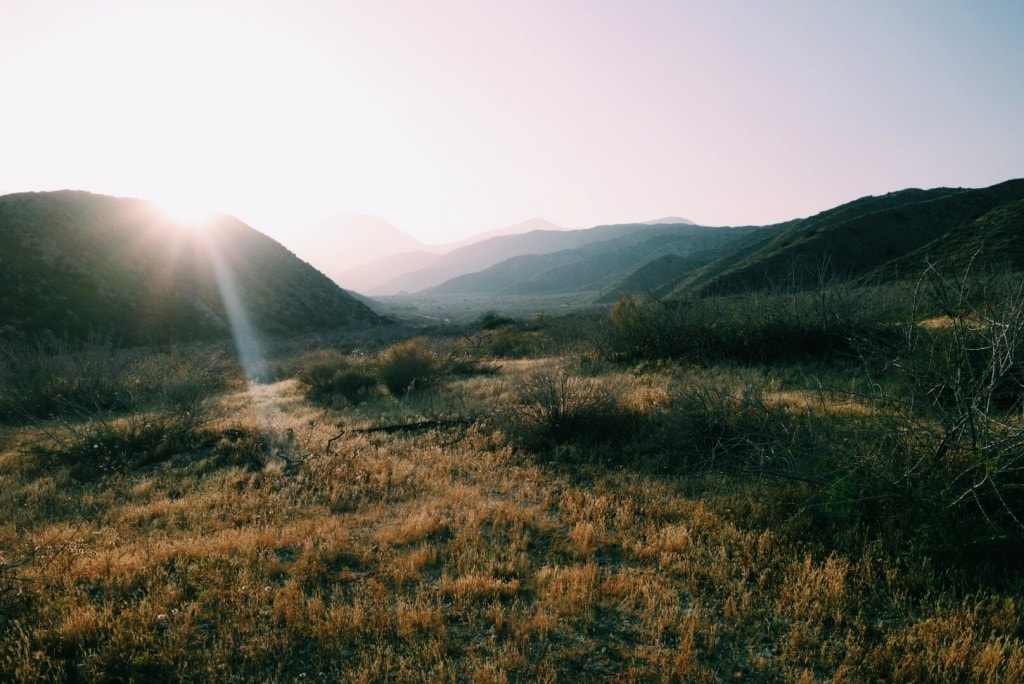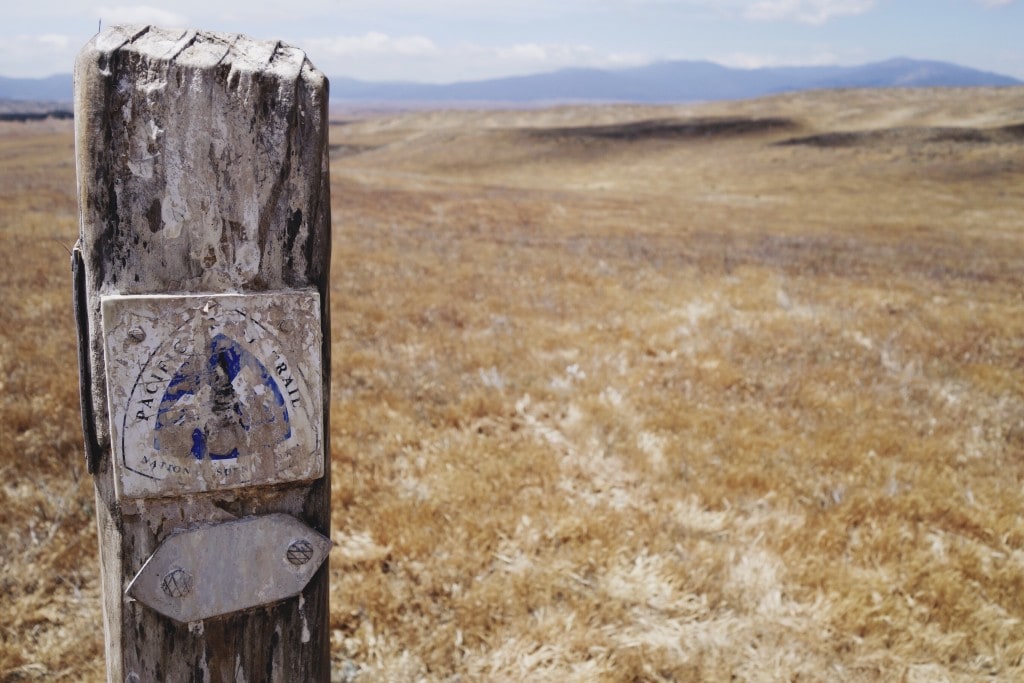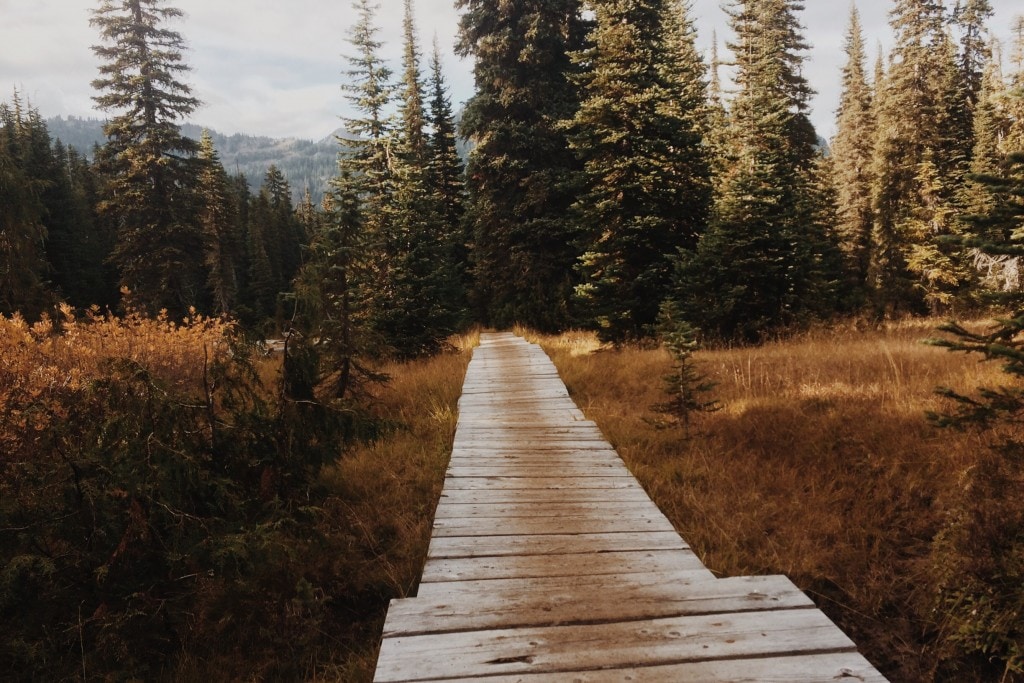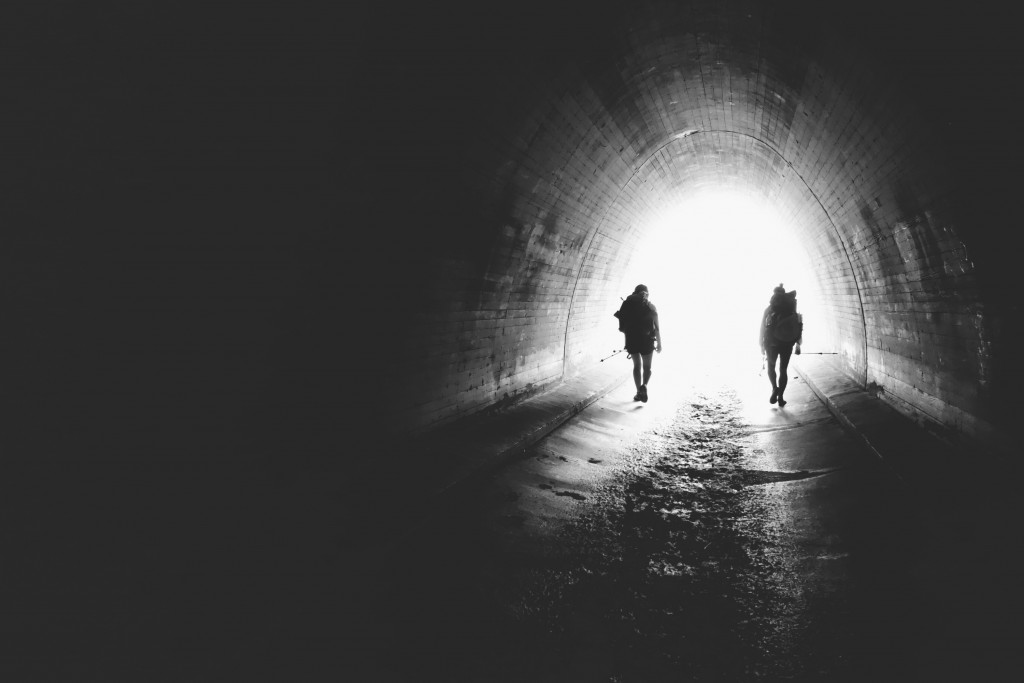“With life experiences—vacations, marathons, big wave surfing, even our jobs—people think it will satisfy them completely. When they come back and they feel longing or sadness it can contribute to depression.” —Dr. James Chidester
When you get off your bike after miles of road and start walking, there is that drop, your legs confused about how to move on flat ground after spinning for so long. After hiking 2,650 miles of the United States from Mexico to Canada on the Pacific Crest Trail, there is that same drop—but it is mental, not physical.
When I finished my thru-hike and moved back to Seattle, I was unable to become accustomed to my new reality of not walking north every single day. I sunk into a silent, solitary depression that only lifted a year later. I did not talk about it, I did not think about it and I did not do anything about it until it ended, abruptly, of its own accord. But when it stopped, I started talking. I found I wasn’t alone.
This is the result.

When Our Expectations Fail
I met Adrian “Felix Felicis” Harrison (Appalachian Trail 2014, Pacific Crest Trail 2015, Te Araroa Trail and Continental Divide Trail 2017) at the end of California and hiked 1,000 miles with them. We talked about everything—the color of the leaves, the state of the nation, their mood disorder. They live with bipolar II, and thru-hiking is one of the things that helps their mental health.
Before the Appalachian Trail, they didn’t know that finishing would be such a challenge. “All of the things I read—no one talks about post-hike depression. I just heard about the good things.” They spent the entire trail feeling superficially very happy. But when they finished the trail with the classic summit of Mount Katahdin, something was off.
“I didn’t feel a single thing. I reached the top of the mountain that I’d been hiking towards for six months and I still hated myself. I didn’t know how to cope with that. I wish I could have cried or felt accomplished or felt anything,” they explained. Things went downhill from there. After bouts of mania, depression, reckless behavior and suicidal thoughts, they got help. And they planned their next thru-hike—with better tools for coping afterward.
“Don’t go into thru-hiking with an expectation of a result. The whole beauty of thru-hiking is learning how to give up control. So many things could go wrong—you have to let go of what the situation could be or should be and accept what is.” —Adrian “Felix Felicis” Harrison
Jesse “Lancelot” Caldwell also thru-hiked the Pacific Crest Trail in 2015. I met him at the beginning of my hike and reached out when he posted about his depression after-trail: “It’s been a year since I finished hiking the PCT. When I finished I had such hopes to just stand up, heal physically, be productive, make money and get back out to the trail. But that’s not what I’ve done. I’ve spent a large amount of time ashamed, conflicted, unmotivated, without money and without my closest friends. I have been depressed.”
 After his thru-hike, he felt unable to reintegrate into society. It was a stark contrast to his experience on-trail. He said, “I remember on top of Mount Baden–Powell feeling that I had never had a sequence of days that had ever been that unambiguously positive.” But after, “motivating myself to apply fully to a job search felt impossible. I felt like an impostor—like I had to sell a false image of myself and my desires, because nobody wants to hire someone who dreams all day of not being there. I felt like I didn’t belong anywhere.”
After his thru-hike, he felt unable to reintegrate into society. It was a stark contrast to his experience on-trail. He said, “I remember on top of Mount Baden–Powell feeling that I had never had a sequence of days that had ever been that unambiguously positive.” But after, “motivating myself to apply fully to a job search felt impossible. I felt like an impostor—like I had to sell a false image of myself and my desires, because nobody wants to hire someone who dreams all day of not being there. I felt like I didn’t belong anywhere.”
Like Adrian, Jesse also noticed a lack of information about the negatives after a thru-hike. “There is the extreme positivity around the internet presence of PCT hikers. If someone comes on the Facebook PCT board and posts something bad, they say “You did it wrong, don’t blame the PCT.” It is dismissive of people’s negative opinions.”
“Patience is a virtue. Being somewhat gentle, not expecting yourself to hit the ground running is an important thing. We can’t be operating at full steam at all times.” —Jesse “Lancelot” Caldwell
Post-Trail Depression
So what exactly is going on here? To figure it out, I spoke with Seattle-area clinical and sports psychologist Dr. James Chidester. He works with athletes on performance and personal issues, including post-thru-hike depression. He says, “We know that when people are dealing with depression, they are often grieving some kind of a loss.”
Hiking 12 hours a day is an amount of physical exertion hard to replicate in civilization. When hikers end their trail, they also lose the endorphins their brain became accustomed to; they lose the high that can come from companionship and a sense of being part of something greater. Also, it is also not uncommon for thru-hikers to abuse alcohol or drugs on-trail. This can cause or exacerbate depression. Finally, many hikers do not have a source of income when they finish the trail. Financial stress can be a huge contributor to depression.
Signs and Symptoms
How can thru-hikers know if they’re having a problem? Dr. Chidester explains, “If a person doesn’t want to re-engage at all in their life, they don’t want to do things that they previously enjoyed, they are isolating themselves from people, they don’t want to get a job, they are having suicidal thoughts, they’re coping with substance abuse, or if they’re feeling down, depressed or blue.” These are red flags—and it’s a good idea to get professional help.

What Can You Do?
- Have a post-hike plan: Chidester suggests forming an idea of where you’ll live and work and what your routine will look like when you finish. It is exciting to leave life after the trail up in the air, but afterward, it can be a very negative experience.
- Be realistic: Preparing for grief is a great idea. If you go into the experience knowing that once you’re done you’ll have some sadness to work through, you’ll be ahead of the curve.
- Exercise: Finding other means of exercise is very helpful with depression in general. Research backs up this claim. Going on day hikes or hitting the gym is invaluable.
- Share the experience: Even if people can’t or won’t understand, be willing to share the experience. You can remember the good times, and connect with your community at home. Even better? Meet up with the thru-hikers you have nearby—they can understand what you’re going through.
- Cultivate gratitude: Becoming bitter about the stresses of daily life is a common theme among thru-hikers. Create a gratitude list and try and see the bigger picture.
- Create routines: Having a sense of purpose is really good for combating depression. Creating a consistent sleep schedule and cultivating good habits makes the transition from trail to civilization much easier.
- Get professional help: Most people wait until they are in a crisis before getting professional help. Therapy can be preventative, so it can be a good idea to meet with a therapist right after the trail (and right beforehand, if you see one already). However, if you are having a hard time functioning, thinking of hurting yourself, or not enjoying things you usually do, get help immediately.
Need Help Now?
Call the 24-hour, toll-free confidential National Suicide Prevention Lifeline at 1-800-273-TALK (8255) or go to www.suicidepreventionlifeline.org.
Learn more about depression at the National Institute of Mental Health or HelpGuide.org.
